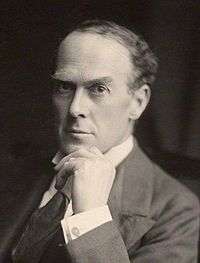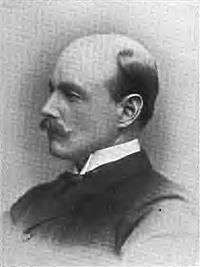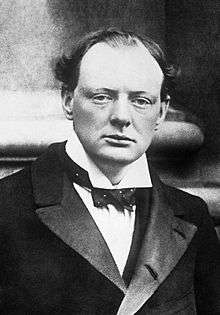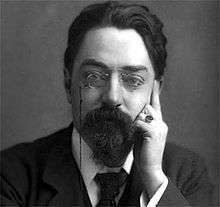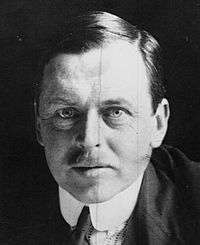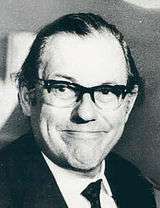Secretary of State for the Colonies
| Secretary of State for the Colonies | |
|---|---|
| Inaugural holder |
1st: The Earl of Hillsborough 2nd: Sir George Grey |
| Formation |
1st: 27 August 1772 2nd: 12 June 1854 |
| Final holder |
1st: Welbore Ellis 2nd: Frederick Lee |
| Abolished |
1st: 8 March 1782 2nd: 1 August 1966 |
| Deputy |
Under-Secretary of State for the Colonies Under-Secretary of State for War and the Colonies Minister of State |

The Secretary of State for the Colonies or Colonial Secretary was the British Cabinet minister in charge of managing the United Kingdom's various colonial dependencies.
The position was first created in 1768 to deal with the increasingly troublesome North American colonies. Previously those responsibilities had fallen to the Secretary of State for the Southern Department, who was responsible for Southern England, Wales, Ireland, the American colonies, and relations with the Catholic and Muslim states of Europe.
In 1782, following the loss of the American colonies, the office was abolished, and its duties given to the Home Secretary, then Lord Sydney. In 1794 a new office was created for Henry Dundas — the Secretary of State for War, which now took responsibility for the Colonies, and was renamed the Secretary of State for War and the Colonies in 1801. In 1854, military reforms led to the Colonial and Military responsibilities of this secretary of state being split into two separate offices, with Sir George Grey becoming the first Secretary of State for the Colonies under the new arrangement.
In the latter part of the nineteenth century the United Kingdom also gained control over a number of territories with the status of "protectorate". The ministerial responsibility for these territories was initially held by the Foreign Secretary. However, by the early years of the twentieth century the responsibility for each of these territories had been transferred to the Colonial Secretary as well. The League of Nations mandated territories acquired as a result of the Treaty of Versailles (1919) became a further responsibility of the Colonial Office in the aftermath of the First World War.
In 1925 part of the Colonial Office was separated out as the Dominions Office, with its own Secretary of State. The new office was responsible for dealing with the Dominions together with a small number of other territories (most notably Southern Rhodesia).
In the twenty years following the end of the Second World War, much of the British Empire was dismantled as its various territories gained independence. In consequence, the Colonial Office was merged in 1966 with the Commonwealth Relations Office (which until 1947 had been the Dominions Office) to form the Commonwealth Office, while ministerial responsibility was transferred to the Secretary of State for Commonwealth Affairs (previously known as the Secretary of State for Commonwealth Relations). In 1968 the Commonwealth Office was subsumed into the Foreign Office, which was renamed the Foreign and Commonwealth Office (FCO).
The Colonial Secretary never had responsibility for the provinces and princely states of India, which had its own Secretary of State.
From 1768 until 1966 the Secretary of State was supported by an Under-Secretary of State for the Colonies (at times an Under-Secretary of State for War and the Colonies), and latterly by a Minister of State.
Secretaries of State for the Colonies, 1768–1782
| Name | Portrait | Term of office | ||
|---|---|---|---|---|
| The Earl of Hillsborough | 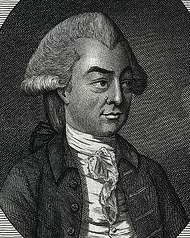 |
27 February 1768 | 27 August 1772 | |
| The Earl of Dartmouth |  |
27 August 1772 | 10 November 1775 | |
| Lord George Germain | |
10 November 1775 | February 1782 | |
| Welbore Ellis |  |
February 1782 | 8 March 1782 | |
Responsibility for the Colonies held by:
- Home Secretary 1782–1794
- Secretary of State for War 1794–1801
- Secretary of State for War and the Colonies 1801–1854
Secretaries of State for the Colonies, 1854–1903
Secretaries of State for the Colonies, 1903–1966
Responsibility for the colonies held by:
- Secretary of State for Commonwealth Affairs 1966–1968
- Secretary of State for Foreign and Commonwealth Affairs 1968–present
Following the British Nationality Act 1981 the term "colony" ceased to be used; Britain's rule over Hong Kong, the last significant colony, ceased in 1997. Britain retains certain overseas territories.
References
| History of United Kingdom government departments with responsibility for foreign affairs | ||||||||
|---|---|---|---|---|---|---|---|---|
| Colonial Office 1768–1782 Secretaries Undersecretaries |
Home Office 1782–1794 Secretaries Undersecretaries |
War Office 1794–1801 Secretaries Undersecretaries |
War and Colonial Office 1801–1854 Secretaries Undersecretaries |
Colonial Office 1854–1925 Secretaries Undersecretaries |
Colonial Office 1925–1966 Secretaries Ministers Undersecretaries |
Commonwealth Office 1966–1968 Secretaries Ministers Undersecretaries |
Foreign and Commonwealth Office 1968–present Secretaries Ministers Undersecretaries | |
| Dominions Office 1925–1947 Secretaries Undersecretaries |
Commonwealth Relations Office 1947–1966 Secretaries Ministers Undersecretaries | |||||||
| . | India Office 1858–1937 Secretaries Undersecretaries |
India Office and Burma Office 1937–1947 Secretaries Undersecretaries | ||||||
| . | Foreign Office 1782–1968 Secretaries Ministers Undersecretaries | |||||||


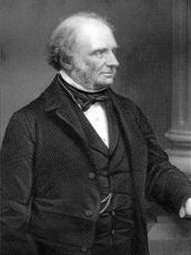




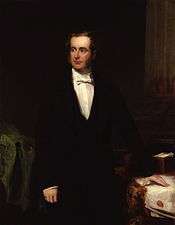




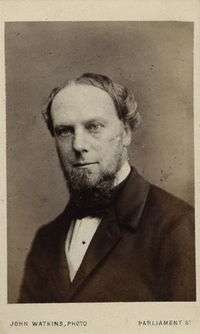
.jpg)



